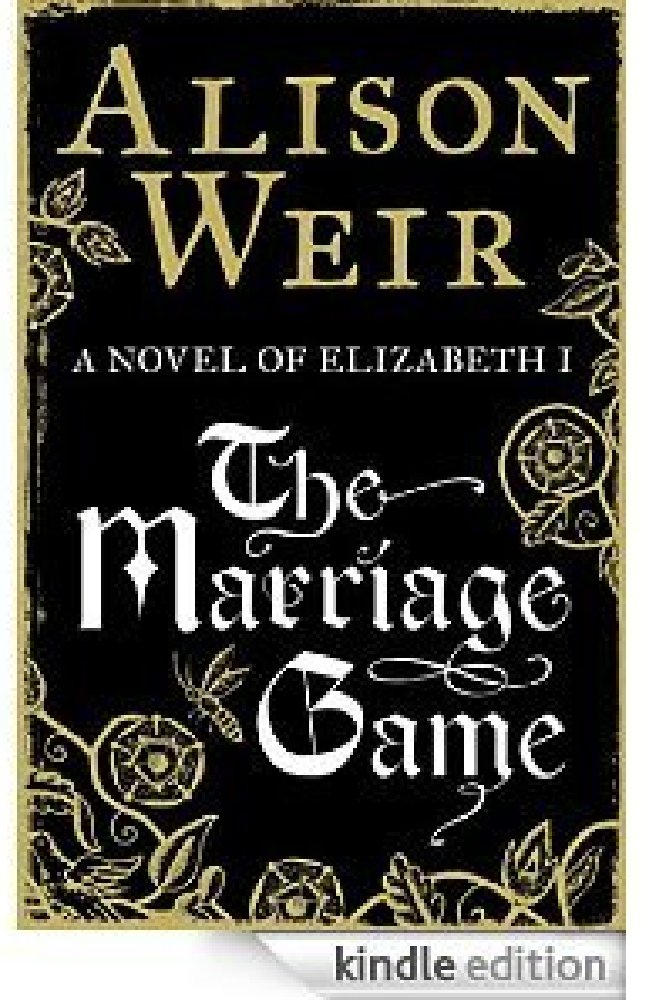
The Marriage Game
The Marriage Game tells the astonishing story of the celebrated courtships of Elizabeth I, the Virgin Queen, and I have made creative use of historical sources to tell this tale in as authentic a manner as possible, bringing the formidable, complex character of Elizabeth to life for readers who like to learn about history through fiction.
I wanted to show how Elizabeth managed masterfully to play what is often called ‘the marriage game’ for a quarter of a century without committing herself to any man. In it I have explored how the beheading of her mother, Anne Boleyn, and others close to the young Elizabeth, impacted on the Queen’s emotional and sexual life.
The book is chiefly the story of the tempestuous and ultimately poignant relationship between Elizabeth and Robert Dudley, Earl of Leicester, the man whom she loved more than any other, and it addresses the question that everyone asks: did they or didn’t they? It also explores the mystery surrounding the murder of Robert’s wife, Amy Robsart. Above all, it shows how Elizabeth – regarded by much of Europe as a bastard, a heretic and a usurper – managed to survive as a female ruler in a male-dominated world and emerge triumphant over her enemies.
When did your passion for history begin?
When I was fourteen my mother enrolled me for the first time in an adult library and said, ‘Get a book!’ Wandering around idly, I found one that looked intriguing. It was a novel about Katherine of Aragon, the first wife of Henry VIII, and entitled Henry’s Golden Queen the author was the prolific and exotically-named Lozania Prole. I devoured it in two days; I could not put it down. A whole new wonderful world was opening before me. I had to find out more. Overnight I was hooked!
Please tell us about your research process into the book.
I begin with a Word document, which is always the proposal that was sent to my publishers before the book was commissioned. It’s a brief overview of the story/facts and my approach to it. I start with primary sources, adding into the narrative all the time, before going on to the secondary sources. The book is constantly evolving, and there comes a time when I have to divide it into chapters. I have found this the most efficient way of crafting a book.
Why is Elizabeth’s story so fascinating for you?
What I find so outstanding about Elizabeth is not only her intelligence and forceful personality, but her being a great and successful ruler in an age of outstanding achievements: the era of the Armada, Drake and Raleigh, Shakespeare, Spenser and Marlowe, and of some of the most able politicians ever to serve an English monarch.
Elizabeth presided over this age and was its inspiration, even if she did not actively influence all its successes. She was also the chief promoter of the English Protestant settlement and a great champion of burgeoning nationalist sentiment. Throughout her reign, she worked hard to earn and retain the love of her people. 'Be ye well assured I will stand your good Queen,' she told her subjects as she rode to her coronation.
Yet what most fascinates me is Elizabeth's role as a woman. Feminists, and indeed many women, see her as an icon because she triumphed as a female ruler, exercising sovereign power brilliantly and effectively in a male-dominated world. She proved she could rule independently without the help of a man and successfully asserted her autonomy by cleverly fielding all the proposals of marriage made to her. Although the appalling circumstances of her childhood and youth could have made her a victim, she rose above them and made an outstanding success of her life. She was a great survivor: she inherited a bankrupt kingdom, yet against all the odds she died a legend 45 years later.
You write fiction and non-fiction books so do you have a preference between the two?
That’s a hard question to answer! I enjoy both immensely: it’s a joy to be able to interpret history in different ways.
How difficult is it to write historical fiction without overloading the reader with time bound details?
It was very hard at first to come down off the fence and stop being a historian, but I have benefitted from the advice of outstanding editors, from whom I have learned so much about the writing of historical fiction. One of the first rules is that the facts have to be seamlessly incorporated into the narrative, through speech, or showing rather than telling, so that the reader isn’t daunted by an overload of history.
What is next for you?
I am working on The Princess of Scotland, a biography of Margaret Douglas, Countess of Lennox, and revising an earlier book, The Six Wives of Henry VIII.

